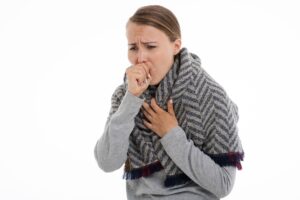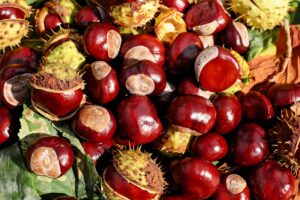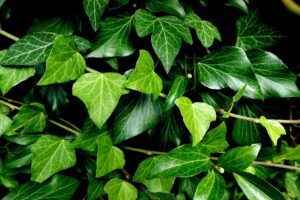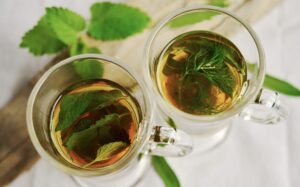
Herbal therapy for coughs and chest infections
When a common winter cold becomes a bit more than that, and escalates into a chest infection it can really challenge our ability to bounce back to full health. The lungs and airways become congested and an irritating, persistent cough can really impact our energy level, sleep pattern, appetite and quality of life. These symptoms may continue long after the initial infection has resolved. You can become stuck in a cycle of cough / inflammation / catarrh which simply won’t shift.

When I see a patient in clinic with a lingering cough, I carry out a respiratory examination just to make sure there is nothing that might require referral for specialist diagnosis. (Medical Herbalists are trained to examine and diagnose in the same way as your G.P.) That done, I can start to formulate some herbal medicine to calm the cough reflex and to loosen and eliminate mucus.

The main group of plants that we use are the Expectorants. They work in two different ways. The reflex expectorants act as mild stimulants – not directly in the lungs but surprisingly in the digestive tract! Here they stimulate the vagus nerve, which extends into many areas of the body including the lungs. This vagal nerve stimulation causes more mucus to be produced which sounds counter intuitive when we are aiming to clear mucus. However, this extra mucus is looser and liquid so all the material causing the congestion and cough becomes loose and is easily cleared by the tiny hairlike cilia in the lungs. Horse chestnut, Licorice and English Ivy are all examples of reflex expectorants.

Next come the antiseptics, herbs with antibacterial and antiviral properties such as Hyssop, Thyme, Elderberry, Echinacea and Elecampane. Antiseptic herbs contain many complex phytochemicals which mean they are broad spectrum, acting against a wide range of micro-organisms.

Then we have the essential oils which are present in very small concentrations in herbal tinctures and teas (we are not talking about the concentrated essential oils that are used in aromatherapy – we don’t prescribe those orally). Herbal preparations containing minute amounts of essential oils are taken orally. These are absorbed in the digestive tract and find their way to the lungs where they also stimulate clearance of mucus. These essential oils also act as antiseptics, to clear any lingering infection. The herbs I use most often in this way are Aniseed and Fennel. I will add in other medicinal herbs depending on the patient’s individual constitution and symptoms e.g. for relaxation, circulation, liver and digestive support.
Lemon is a soothing home remedy – a hot drink with slices of lemon contains similar essential oils. Or try this simple cough syrup:
Home remedy cough syrup
Ingredients
150ml olive oil
4 lemons
A handful fresh sage
A handful fresh thyme
A handful fresh rosemary
3 cm piece fresh ginger root
180 ml honey
1 sterilised jar
muslin cloth
Recipe
- Macerate the herbs in a food processor
- Juice the lemons, add to a pan with the herbs and olive oil
- Simmer for 5 – 10 minutes. Allow to cool.
- Strain through the muslin cloth into a bowl, squeezing the herbs to extract as much of the juice s possible.
- Add the honey. Pour the whole mix into a sterilised jar
- Take by the tablespoon or in a herb tea.
- Keep refrigerated and use within 10 days.
Carol Thorogood (BSc Hons, Dip H.M,. MNIMH) is a consulting Medical Herbalist.
To enquire or to book an appointment e mail cornwallherbalclinic@hotmail.com or phone 07947908376.

